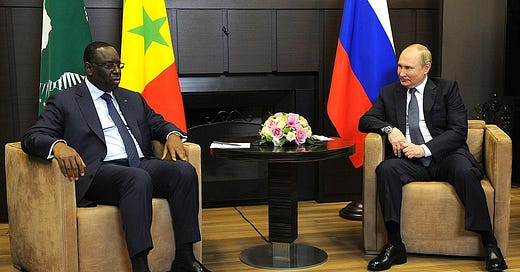REAL IMPACT OF RUSSO-UKRAINE WAR ON AFRICA
I am writing here to clear up what I feel are misunderstandings of the real impact of the war on Africa in general (and sub-Saharan region in particular).
Let me start by saying that the African continent indeed imports a lot of wheat from Europe, particularly from Russia and Ukraine. Why? Because little amounts of wheat are ever grown on the continent. Having said that, it is a myth to say that Africans will starve without wheat imports. Wheat is not a staple food in most of Africa. In fact, this particular grain was introduced to many parts of Africa by European colonials back in the 19th Century.
People in the sub-Saharan region live on their real staple foods like rice, maize, cassava, yam, etc. Wheat is mainly used for making bread and pastries (none of which are traditional foods in the sub-Saharan region). Saying that Africans will starve without Ukrainian/Russian wheat is akin to saying that Europeans will starve without imported Caribbean bananas.
The real effect of the war will be felt in the soaring energy prices. Petroleum-rich African nations such as Nigeria, Algeria and Angola will not feel that adverse effect to the same extent as resource-poor African nations such as Malawi, Senegal and Mali.
For example, some petroleum-rich African nations will barely feel the impact of reduced availability of Russian/Ukrainian fertilizer in the market for the singular fact that they produce their own fertilizer.
Nigeria alone has several state-owned and private companies producing fertilizer. In late March 2022, a new privately-owned fertilizer plant opened in Nigeria. It is the largest anywhere in Africa and is capable of producing three million metric tonnes of fertilizer annually.
Resource-poor African nations like Senegal or Malawi have to import Petroleum from abroad. The high energy prices means that the importation of this precious energy resource will be incredibly expensive.
The cost of transporting real staple foods (e.g. maize) from the farms to the marketplace will rise with high petroleum prices. Before appearing in the market, staple foods such as rice needs to be processed first. The operating costs of processing machines soars with rising petroleum prices.
In other words, the market price of genuine African staple foods--which are not in short supply on the continent thanks to local production and imports from Asia--becomes incredibly expensive and out of reach of poor people with soaring petroleum prices.
Like I stated before, African nations that produce their own petroleum and fertilizer will not feel the impact to the same extent as resource-poor African states. For example, the Nigerian government is heavily subsidizing the cost of petroleum for its citizens to cope with the soaring energy prices. Resource-poor African nations cannot do the same.
So the primary concern of the Senegalese President in Moscow is soaring energy and commodity prices for countries like Senegal, Malawi, Central Africa Republic, etc, which have zero petroleum resources of their own. (Wheat availability and food importation are secondary issues)
THE END
Dear reader, if you like my work and feel like making a small donation, then kindly make for my Digital Tip Jar at Buy Me A Coffee





